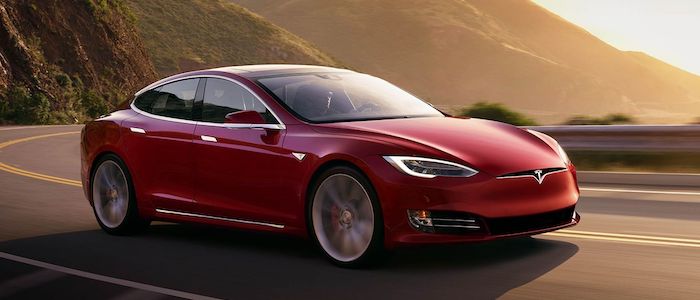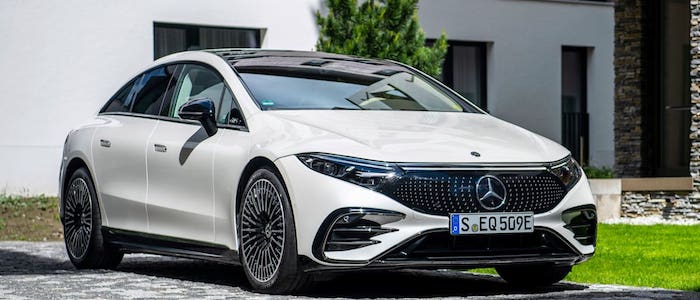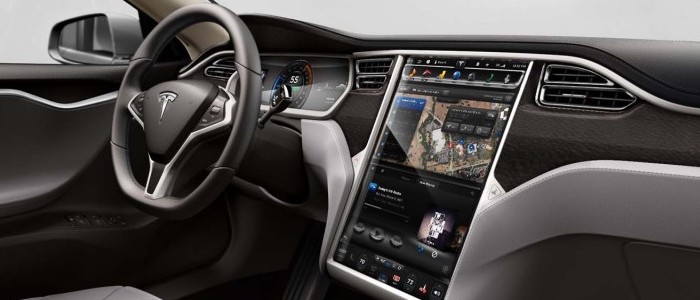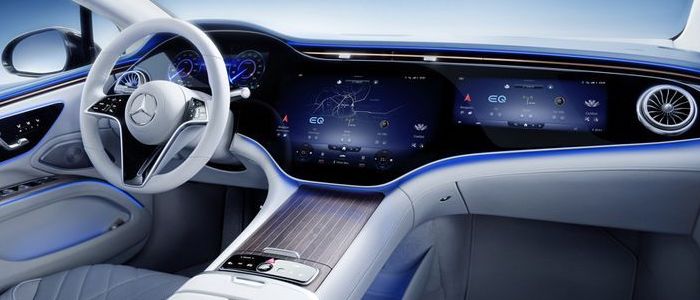Compare two cars
Compare any two cars and get our Virtual Adviser™ opinion
Dimensons & Outlines
Check a car with 30% off a report
Engine
MEA Single 333 / 108kWh
Performance (manual gearbox)
Performance (automatic gearbox)
Expenses
Virtual Adviser's™ opinion
Well, these are two pretty similar cars we have here! It's only details that could potentially make the difference. Considering they both belong to the executive car segment and utilize the same 5-door hatchback body style and the rear wheel drive system, it all comes up to the specific electric engine choice they offer. The first one has a Tesla-engineered powertrain under the hood, a IM Electric unit in formation 0 / 1 with 315hp unit, while the other one gets its power and torque from a PMSM Electric unit in formation 0 / 1 with 333hp engine designed by Mercedes Benz.
SafetyBoth vehicles got tested by European New Car Assessment Programme (Euro NCAP), with the same number of safety stars gained in the process. Moving further on, let's take a closer look at some additional safety-related facts. Both vehicles belong to the executive car segment, which is generally a fortune safety-wise, but that fact doesn't break the tie between the two cars. On the other hand, when it comes to weight, a factor that most people underestimate, the German car offers a considerable difference of 26% more metal.
ReliabilityReliability is not the best thing to consider on the make level, but it is worth mentioning that Tesla is significantly less fault-prone, at least on all of the models level. That's the official data, while our visitors describe reliability of Tesla with an average rating of 1.3, and models under the Mercedes Benz badge with 4.3 out of 5. Unfortunatelly, I don't have enough insight that would allow me to comment in more details on the specific models level. Above it all, drivers of cars with the same engine as the American car rank it on average as 1.0, while the one under the competitor's bonnet gets 3.0 out of 5.
Performance & Fuel economyTesla is a bit more agile, reaching 100km/h in 0.4 seconds less than its competitor. Still, it lacks the power to win the top speed competition, topping at 210 kilometers per hour, exactly the same as the other car does. When it comes to fuel economy things look pretty much the same for both cars, especially if you take into account all the free charging points provided by the manufacturer and/or the local government's environmental programs. One of the essential things to consider when it comes to this type of vehicles would be range, with throne undoubtedly being claimed by the German car with its additional 231 kilometers on a single charge.
Verdict
Mercedes Benz appears just a bit more reliable, although the difference is truly marginal. The most important thing when deciding between any two vehicles should always be safety, both passive and active. In my opinion, everything taken into account, the German car offers significantly better overall protection, taking the lead here. From there things take a different direction, with Tesla offering somewhat better performance, just enough to call it quicker. The German car is incomparably more generous when it comes to range, which could (and potentially should) be a deal-breaker for the other contender. All together, there's not much more to say, in this case I wouldn't even consider anything but Mercedes Benz. Anyway, that's the most objective conclusion I could've came up with and it's based solely on the information found on this website. Aspects such as design, practicality, brand value and driving experience are there for you to measure them out. In case you have two minutes to spare I invite you to define your needs, desires and budget and see which car would be chosen by the virtual adviser™, among thousands of similar, yet so different vehicles.































